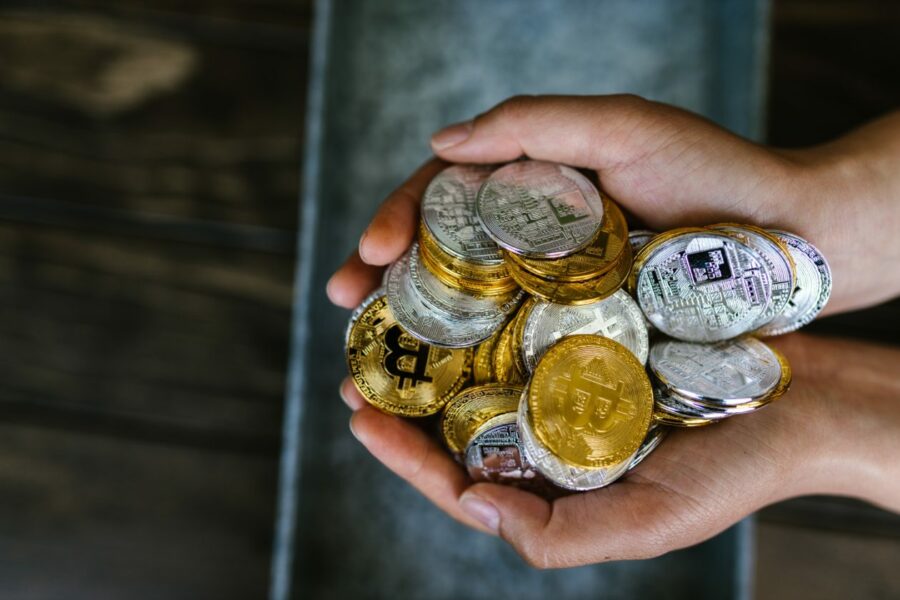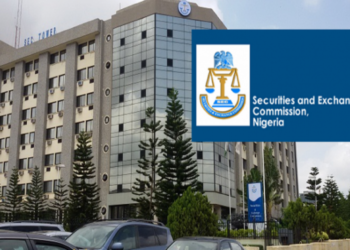The Securities and Exchange Commission (SEC) has released new rules for Digital Assets as part of its effort to regulate digital/virtual assets such as Bitcoins and NFTs.
This is contained in a recently released document titled, “New Rules on Issuance, Offering Platforms, and Custody of Digital Assets” essentially legalizing digital assets such as cryptocurrencies in Nigeria.
Recall when Nairametrics reported the SEC Director-General’s declaration in September 2021 that a department had been established to investigate the crypto market.
Digital Asset Players will now include Digital Asset Offering Platforms (DAOPs), Digital Asset Custodians (DACs), Virtual Assets Service Providers (VASPs), and Digital Assets Exchange (DAX).
The Rules apply to all platforms that support the trading, exchange, and transfer of virtual assets; all issuers and sponsors of virtual/digital assets, including international and non-residential issuers and sponsors; and any operator that aggressively targets Nigerian investors.
Game changer
The new regulation creates roles for different players in the digital asset space, each playing a key role in the new sector.
- The new regulations essentially classify digital assets as securities providing other regulators such as the Central Bank of Nigeria.
- The CBN had in February 2021 banned cryptocurrencies stating that it has “no comfort in cryptocurrencies at this time and will continue to do all within its regulatory powers to educate Nigerians to desist from their use and protect our financial system from the activities of fraudsters.
- The Securities and Exchange Commission (SEC) responded that it “has disclosed that there is no policy conflict between the capital market apex regulator and the Central Bank of Nigeria (CBN) over the ban placed on Cryptocurrency transactions in the banking industry.”
- SEC also stated, “As regards our recent policy pronouncement, it is important to clarify that the CBN circular of February 5, 2021, did not place any new restrictions on cryptocurrencies, given that all banks in the country had earlier been forbidden, through CBN’s circular dated January 12, 2017, not to use, hold, trade and/or transact in cryptocurrencies,”
Key definitions
- SEC Defines “Digital Assets” as “a digital token that represents assets such as a debt or equity claim on the issuer”.
- SEC also defines Securities Token Offering – Securities Token Offering (STO)” means any offering and sale of digital tokens that are considered securities.
- SEC defined the Digital Assets Offering (DAO) Platform as an electronic platform controlled by a DAO operator that hosts a DAO.
- While a Digital Asset Custodian is defined as a business that provides safekeeping, storage, holding, or maintenance of virtual/digital assets for the account of another person.
Key Highlights of the regulation
On Filing the initial application
- All promoters, entities, or businesses proposing to conduct initial digital asset offerings within Nigeria or targeting Nigerians, are expected to submit the assessment form and the draft white paper.
- White papers are expected to include disclaimers stating the following in bold capital letters “THE SECURITIES AND EXCHANGE COMMISSION HAS NOT APPROVED THESE TOKENS OR DETERMINED IF THE TOKENS ARE SECURITIES AND THUS, SHALL BE REGISTERED, OR THAT THE CONTENT OF THE WHITEPAPER ARE ACCURATE AND COMPLETE. ANY FALSE OR MISLEADING REPRESENTATION IS A CRIMINAL OFFENCE AND SHOULD BE REPORTED IMMEDIATELY TO THE SECURITIES AND EXCHANGE COMMISSION”
- The commission will review applications within a period of 30 days and give its written feedback within 5 days after the review.
On Registration
- After SEC has determined that the digital asset is a security, the issuer will apply for registration.
- The registration document will include the name of the tokens, the ticker, price, amount, and the number of tokens.
- They will also need to provide solicitors’ opinions and corporate governance disclosures.
- There will also need to be an escrow agreement with an independent Custodian/Trustee registered with the Commission.
On Moratorium on Equity Interest
- SEC also includes a provision that ensures the issuer’s directors and senior management shall, in aggregate, own at least 50% equity holding in the issuer on the date of the issuance of the digital assets.
- This essentially commits the sponsors of ICOs to own half of the entity that is issuing the security.
- On Post issuance, it also states that “the issuer’s directors and senior management may sell, transfer or assign not more than 50%; provided that the quantum of equity being sold, transferred or assigned shall not be more than 50% of their respective holdings until completion of the initial digital asset offering project.”
Limitation to funds being raised
- The regulation provides that issuers may only raise funds within the limit of N10 billion. However, it states that SEC can increase or decrease the ceiling from time to time.
- “An issuer may only raise funds subject to the following limit: Twenty times the Issuer’s shareholders’ funds i.e., the maximum quantum of funds permitted to be raised within any continuous 12- month period, subject to a ceiling of N10 billion or any other ceiling as the Commission may determine from time to time.”
- SEC also states that in the event that the raise fails to meet its soft cap (defined as the minimum raise) it “shall refund all monies collected from the token holders within five (5) business days from the offer closing date.”
Investment Limits
- The SEC regulation also stated the maximum amount retail investors can invest in the digital asset offering.
- For qualified institutional and high net worth investors, no restriction on investment amount;
- For retail investors, a maximum of N200,000 per issuer with a total investment limit not exceeding N2 million within a 12-month period
Other highlights
- For Digital Assets Offering Platforms (DAOPs) looking to operate in the market, SEC requires that they file and pay an application fee of N100k Processing fee of N300k, and a registration fee of N30 million.
- There is also a sponsored individual fee of N100k
- They will also need to have a minimum paid-up capital of N500 million and will be required to provide a current “Fidelity Bond” covering 25% of the minimum paid-up capital as stipulated by the Commission’s Rules and Regulations.
Download the regulations here.























Dereva
Gombe
This is the best news this year, Emefiele doesnt know left from right…
I am happy with this development.
This is completely unacceptable with such hight cost of registration fee. Nigeria continues to cheese out investors and innovators out of it corridor of doing business.
Huh?! Where did you see registration fee?!
It’s there, N30m
Kudos to SEC for a dynamic inclusion which has given legitimacy to this cutting age financial instrument of the 21st century.. I am sure the CBN will tag along too with its own aspects of the rules to compliment sec so that Nigeria can have a water tide Regulatory regime on crypto 😉 I can see light at the end of the tunnel.
This is long awaited good news from the SEC. We urge the CBN to immediately review its ban on crypto in order for the country to benefit from the high volume of crypto transactions going on between individuals in various exchanges. The ban only served self interests but not for the general benefit of the country’s economy. Are large volume cross border monetary crimes still not taking place with conventional currencies / securities? Why did they single out Cryptoes? Whoever adviced them on it in order for the eNaira to be launched and promoted, didn’t do a good job. Where is the eNaira today? It will remain a pipe dream unless crypto is legally allowed to synergize with other securities in Nigeria’s financial environment. This is because the youths and tech savvy matured citizens now know how to employ themselves along the global trends of doing business at low costs. Yes, many have downloaded the eNaira app, but it’s just out of curiosity and for fun. The ban on crypto by the CBN is an anti- masses policy. It has only even helped spur interests in Crypto the more and the country’s economy is the loser. The earlier CBN embrace regulation over outright ban, the better for the economy.
Sec should advice government better on the new innovation, the strategy, the needs so that government should add digital economy in the schools curriculum as a course to reduce high level of jobs seekers in the country
Well this is good.
Although not quite fair on the part *LIMITATION OF FUNDS BEING RAISED* per project.
Damn🤗🫡
Only InksnationDAO and Zugacoin maybe able to meet up with this.
I hope Bishop and UDI can move in on this QUICKLY.
30 million for Total REGISTRATION and documents processing is not too much.
That way, broke scam developers can stay off the space..
We waiting for CBN to stop outsmarting their own selves to the detriment of NGN economy.
I think CBN will now release People’s crypto money they have trapped
I doubt this SEC regulation deals on Cryptocurrency. It clearly say it is to regulate digital assets which was also defined to mean “a digital token that represents assets such as a debt or equity claim on the issuer”. While Cryptocurrency is a digital token, it does not represent a debt or equity claim on the issuer. Compare this definition to Bitcoin and other Cryptocurrencies which do not depend on the issuer’s equity or debt fortunes to exist and gain value, but gets value on its usefulness in the digital space. We need to understand the issue in contention between the US SEC and XRP, which depends on whether XRP is a cryptocurrency or a security. I strongly believe the “digital assets” referred to in this regulation are either debt or equity securities of the Issuer.
Pig farming business in a commercial quantity will employ so many youths in Nigeria